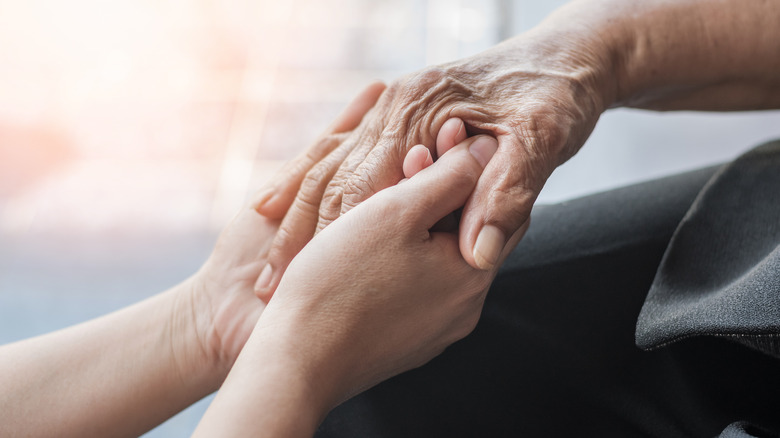Here's What Really Happens To Your Body If You Live To 150
Way back in Sunday school (if you grew up in a culturally-Christian household, that is), you may have heard of Methuselah, the Old Testament character who, purportedly having lived 969 years, according to Genesis 5:27, set the record for longest-lived human ever. Of course, science doesn't always square up exactly with the narrative set forth in religious texts, and in June 2021, as Smithsonian reported, scientists put an upper limit on the amount of time a human could conceivably live, and that limit is 150, a full 819 years short of Methuselah's record.
Of course, just because you can do something doesn't necessarily mean that you should, and when it comes to living to 150, you probably don't actually want to. Even one of the scientists who participated in the study was hesitant to go all-in on living to that age, saying, "things like quality of life start mattering more and more as people experience the loss of them."
Indeed, if you've lived to even a third of that age, you've probably started to experience some of those issues, such as creaking joints when you wake up in the morning, or the need for stronger and stronger prescription glasses. So one can imagine how much life would be miserable at three times that age.
Long story short, living to 150 is probably going to suck
While it may be decades before humans routinely start dying at ages greater than 80 or 90, those who do live to see those advanced ages may yet find out that it's not necessarily a good thing.
Anyone who lives to that age will almost certainly do so with the help of 3-D printed organs, says Forbes. Bioprinting, as it's called, is already a thing, although it's in its infancy right now. By the time anyone currently living is old enough to rely on the process, it may well enough be a routine part of medicine.
Similarly, a sesquicentennarian may well have an artificial exoskeleton to preserve strength or brain implants that might preserve or restore hearing for people who experience routine, age-related deafness or blindness, according to Medical Futurist.
Still, living to that age is going to be fraught, especially if bold predictions for the future of biomechanics don't pan out. Frailty, frequent pain, digestive issues, hearing and vision loss, and other maladies that routinely bedevil the elderly may not actually go away, and even though it may be possible to extend someone's life by multiple decades, a person may not actually want to live through it.
Or, as Heather Whitson, director of the Duke University Center for the Study of Aging and Human Development puts it, "can we extend life without also extending the proportion of time that people go through a frail state?" quoted Smithsonian.

